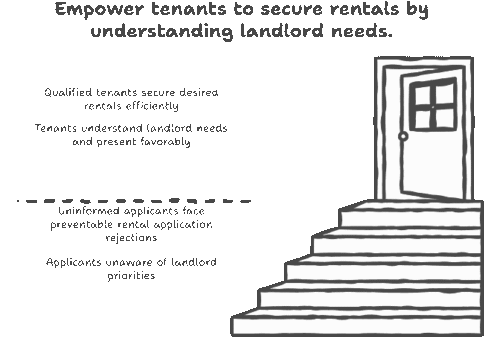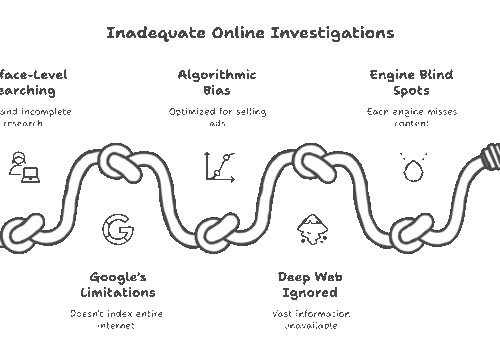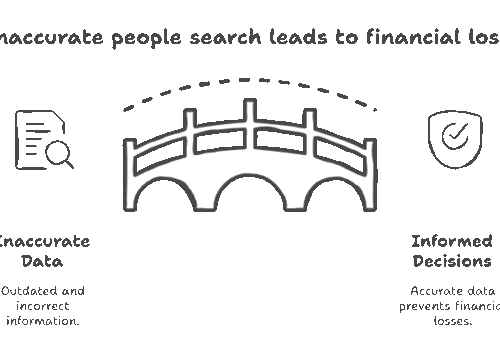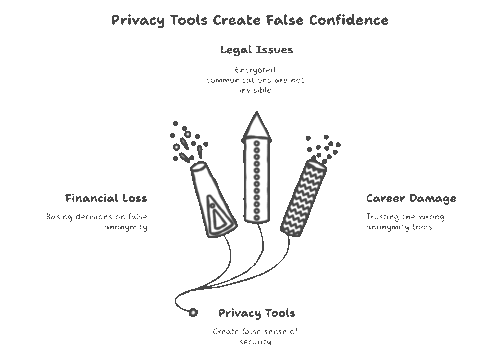Free vs Paid People Search: Are You Getting the REAL Story?
Look, I’m going to tell you about the most expensive “free” search I ever did. Three years ago, I was vetting a potential business partner for a construction project. Guy seemed solid – clean social media, good references, professional demeanor. I did what most people do: Googled his name, checked his LinkedIn, maybe spent twenty minutes on some free people search sites.
Found nothing concerning. Dude looked clean as a whistle.
Fast forward six months: he’d embezzled $47,000 from our joint venture, disappeared, and left me holding the bag for contractor payments and legal fees. Turns out he had two previous fraud convictions in other states, a pattern of incorporation/dissolution shell companies, and was operating under a slightly different version of his legal name.
All of that information was available through paid databases. None of it showed up in my “thorough” free searches.
Why “Free” People Search Is the Most Expensive Option
Here’s what nobody tells you about free people search engines: they’re not free. You’re paying with your privacy, your time, and most importantly, the opportunity cost of making decisions based on incomplete information.
The privacy rape is real. Every “free” search you do gets logged, sold, and packaged into marketing profiles. I tested this by doing searches on a clean browser with a VPN. Within 48 hours, I was getting targeted ads for background check services, legal services, and private investigation companies. They knew exactly what I was looking for and who I was looking for.
But that’s not even the real problem. The real problem is confidence based on incomplete data.
Free people search sites show you just enough information to make you think you’ve done your homework. Basic address history, maybe some family connections, possibly outdated social media profiles. It feels comprehensive when you’re looking at it. You think, “Great, this person checks out.”
Meanwhile, you’re missing:
- Criminal records from other states
- Federal court cases and bankruptcies
- Professional license disciplinary actions
- Detailed employment verification
- Financial judgments and liens
- Recent address changes and evictions
I’ve seen this pattern dozens of times. People do free searches, find nothing obviously bad, then proceed with hiring decisions, business partnerships, or financial commitments. Six months later, they’re dealing with theft, fraud, or worse because they missed information that was sitting in paid databases the entire time.
How Paid Services Actually Work (And Why Most People Use Them Wrong)
The difference between free and paid people search isn’t just quantity of information – it’s quality of sources and verification methods.
Free sites scrape public data. They pull from social media, basic public records, and whatever they can grab through automated systems. No verification, no cross-referencing, no quality control. If someone has the same name as a criminal in another state, you might see that criminal record attached to an innocent person. If someone moved recently, you’ll still see old address information as current.
Paid services buy access to premium databases. They pay for court records, professional licensing boards, financial institutions, and specialized data aggregators. This information gets updated regularly and cross-referenced for accuracy.
More importantly, paid services have data validation systems. When BeenVerified shows me someone’s criminal record, they’re not just showing me a raw court filing – they’re showing me verified information that’s been matched to the specific individual through multiple data points.
The Paid Tools That Actually Deliver Results
After testing every major platform, here are the ones I actually pay for:
BeenVerified: $26.89/month What it does well: Criminal background checks, address history, family connections What it sucks at: Real-time social media monitoring Best for: Basic due diligence and tenant screening
Found a rental applicant’s three evictions and two small claims judgments that weren’t showing up anywhere else. Saved me from a guaranteed nightmare tenant.
TruthFinder: $28.78/month What it does well: Deep criminal history, arrest records, weapons permits What it sucks at: Business and financial information Best for: Personal safety and relationship verification
Helped a friend discover her new boyfriend had domestic violence convictions in two different states. Guy seemed perfectly normal, had great references from mutual friends, and his social media was completely clean. TruthFinder found records that probably saved her from serious physical danger.
Spokeo: $19.95/month What it does well: Social media aggregation, email addresses, phone number verification What it sucks at: Deep criminal history Best for: Contact verification and social media investigation
This is my go-to for verifying someone’s current contact information and online presence. Found out a “successful entrepreneur” who was pitching investors was actually using stolen LinkedIn credentials and fake social media profiles.
WhitePages Premium: $19.95/month What it does well: Current phone numbers, address verification, neighbor information What it sucks at: Historical data beyond basic addresses Best for: Confirming current location and contact details
Used this to verify a business partner’s claimed address after he said he was “relocating to focus on our project.” Turned out he’d been evicted and was actually homeless. Kind of changes the investment conversation.
LexisNexis (Professional): $200+ per month What it does well: Everything – comprehensive legal, financial, and criminal data What it sucks at: Nothing, but it’s expensive and requires professional credentials Best for: High-stakes investigations and legal due diligence
This is what lawyers and PIs use. Not available to general public, but worth mentioning because it shows what comprehensive data looks like. When I need the absolute truth about someone for a major business deal, this is where I go.
When Free Tools Don’t Completely Suck
I’m not saying free people search is always useless. There are specific situations where it makes sense, but you need to understand exactly what you’re getting and what you’re not getting.
Basic Contact Verification
If you just need to confirm someone’s phone number or find their LinkedIn profile, free tools can work fine. I use TruePeopleSearch (actually free, not freemium) to verify basic contact information before reaching out to people.
Example: Need to confirm the correct email address for a potential client. Free search shows their business email and current phone number. That’s sufficient for initial contact.
What I don’t do: Make any business decisions based on the absence of negative information in free searches.
Initial Screening for Large Groups
When I’m screening dozens of potential candidates for something low-stakes, I’ll start with free tools to eliminate obvious problems before investing in paid searches for finalists.
Example: Hiring for a part-time administrative position. Free search can quickly identify people with obvious criminal records or completely fabricated work histories. Then I use paid tools for final verification of top candidates.
The key: Free screening to narrow down, paid verification for final decisions.
Social Media and Public Information Confirmation
Free tools are decent for finding social media profiles and basic public information that people have intentionally made available.
Example: Verifying that someone actually works where they claim to work by finding their LinkedIn profile and checking their company’s employee directory.
Limitation: This only works if people are being honest about their public information. Sophisticated liars know how to manipulate their public presence.
The Situations Where Paid Search Isn’t Optional
Some decisions are too important to base on incomplete information. Here’s when you absolutely need paid tools:
Employment Background Checks
Never hire anyone for a position with financial access, customer contact, or security responsibilities without a comprehensive paid background check. The liability alone makes this non-negotiable.
I consulted for a small business owner who hired a bookkeeper based on free searches and good interviews. The bookkeeper embezzled $80,000 over eight months. Paid background check would have revealed two previous embezzlement convictions and a pattern of job-hopping after financial discrepancies.
Business Partnership Due Diligence
If someone else’s financial problems can become your financial problems, you need comprehensive information about their history.
Minimum paid search requirements for business partners:
- Criminal background check
- Civil court history (lawsuits, judgments, liens)
- Bankruptcy filings
- Business registration history
- Professional license verification
Found a potential partner had six previous business partnerships that ended in lawsuits. Every. Single. One. Pattern recognition prevented what would have been partnership number seven ending badly.
Tenant Screening (If You’re a Landlord)
Evicting bad tenants costs $5,000-$15,000 in legal fees and lost rent. A $30 background check is the cheapest insurance you’ll ever buy.
Screened a tenant who looked perfect on paper – good credit score, solid employment, excellent references. Paid search revealed three evictions in other states under slightly different name variations. Free searches had missed all of them because the name differences were enough to break the connection.
Dating Safety (Especially Online Dating)
I know this sounds paranoid, but I’ve helped three different clients discover that their online dating matches had serious criminal histories including sexual assault and domestic violence convictions.
My rule: If you’re meeting someone from the internet and you’re going to be alone with them, spend $30 to verify they aren’t dangerous. Your safety is worth more than thirty bucks.
Investment and Financial Decisions
Anyone asking you to invest money with them, lend them money, or enter into financial agreements needs comprehensive vetting.
Had a client almost invest $50,000 with a “successful real estate developer” who turned out to have active tax liens, three bankruptcies, and was operating under a suspended business license. The guy’s presentation materials and references were completely fraudulent, but his criminal and financial history told the real story.
The Hybrid Strategy That Actually Works
The most cost-effective approach combines free and paid tools strategically rather than using one or the other exclusively.
My Standard Investigation Process
Phase 1: Free Information Gathering (30 minutes)
- Google search for basic information and red flags
- Social media profile identification
- TruePeopleSearch for contact verification
- LinkedIn for professional claims verification
Phase 2: Paid Verification (45 minutes)
- BeenVerified for criminal history and address verification
- Spokeo for comprehensive social media and contact information
- WhitePages for current address and phone verification
Phase 3: Specialized Searches (if needed)
- Professional licensing board searches
- Court record searches in specific jurisdictions
- Business registration and bankruptcy searches
Total cost: $15-30 per investigation Total time: 2-3 hours for comprehensive search Value: Avoiding one bad hire, business partner, or tenant pays for two years of searches
What Gets Verified vs What Gets Accepted
Always verify through paid sources:
- Criminal history
- Employment claims
- Educational credentials
- Financial standing
- Current address and contact information
Can usually accept from free sources:
- Social media profiles (for context, not decision-making)
- Basic contact information (for initial communication)
- Public business information (if just confirming business exists)
Never trust from any source without cross-verification:
- Income claims
- Asset ownership
- Reasons for leaving previous employment
- Explanations for gaps in employment or residence
Red Flags That Mean You Need Professional Help
Sometimes even paid tools aren’t enough, and you need to bring in professional investigators or attorneys.
Call in professionals when:
- Someone has no digital footprint at all (either very private or actively hiding)
- Information from multiple paid sources contradicts each other
- You find evidence of identity theft or stolen credentials
- Criminal history includes violent crimes or sexual offenses
- Financial history shows sophisticated fraud or money laundering patterns
- You’re dealing with international backgrounds or complex business structures
I’ve learned when I’m out of my depth. Found a business partner candidate who had completely clean records in every database, but something felt off about his explanations for his background. Hired a professional PI who discovered the guy was using a stolen identity. My paid tools showed clean records because the real person whose identity he’d stolen had clean records.
Cost me $2,500 for the professional investigation, but it saved me from a partnership with someone who was already committing federal crimes.
What’s Coming Next (And Why It Matters)
The people search industry is changing fast, and understanding the trends helps you make better decisions about which tools to invest in.
AI integration is making paid tools dramatically more accurate at connecting disparate pieces of information. Instead of just showing you raw data, AI is identifying patterns and connections that humans miss.
Real-time monitoring is becoming standard in premium services. Instead of one-time searches, you can set up alerts that notify you when new information appears about someone.
Dark web integration is bringing previously hidden information into mainstream search tools. Information from data breaches that was only accessible to sophisticated hackers is now being indexed by legitimate search engines.
Privacy legislation is making some information harder to access, but it’s also making the information that remains available more valuable because it’s verified and legitimate.
The Bottom Line
Free people search tools give you enough information to feel confident while leaving you vulnerable to expensive mistakes. Paid tools give you verified information that actually protects you from those mistakes.
The question isn’t whether paid tools are worth the money. The question is whether you can afford to make important decisions based on incomplete information.
After three years and hundreds of investigations, I can tell you this: every time I’ve tried to save money by relying on free searches for important decisions, it’s cost me more in the long run. Every time I’ve invested in comprehensive paid verification upfront, it’s either confirmed good decisions or prevented bad ones.




